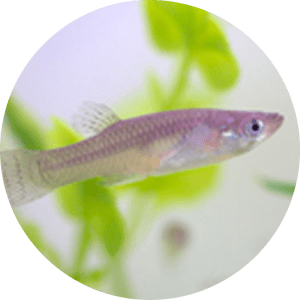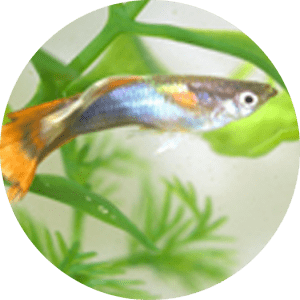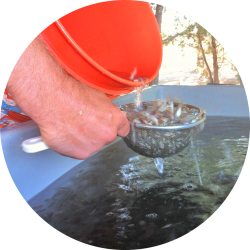BIOLOGICAL CONTROL
Biological control is the use of living organism to control a vector. Biological control methods are very important in protecting the public from mosquitoes. The primary biological control we use is the mosquitofish, Gambusia affinis. The mosquitofish preys on mosquito larvae allowing us to keep mosquito populations under control.
The Fisheries Department is responsible for breeding mosquitofish and other fish species that prey on mosquito larvae. Mosquito-eating fish are readily available for our field technicians and to the general public through our SERVICE REQUEST page. We maintain 23 ponds which produce 2000-7000 pounds of fish annually. Today, we are one of the largest mosquitofish producing facilities in the nation.

MOSQUITOFISH (Gambusia affinis)
The most successful biological tool against immature mosquitoes in California is the mosquitofish, Gambusia affinis. When introduced to a mosquito breeding source, the mosquitofish quickly adapts, multiplies and is capable of controlling mosquitoes in a given area.
The mosquitofish, a live-bearing American fish, is utilized as a predator of mosquito larvae in many diverse aquatic habitats. A small species, the full-grown females are usually less than 2½ inches in total length, while males are typically under 1½ inches. The muted silver and light olive green body color is common to both sexes. In addition, they are able to lighten or darken their body color to closely match their immediate environment.

GUPPIES (Poecilia reticulata)
The guppy, Poecilia reticulata, has been used for biological mosquito control since World War I. It has been introduced almost all over the world from the areas of tropical South America to which it is native. In many areas, the guppy has provided good control of mosquitoes in highly polluted sources, such as sewage pools, dairy lagoons, chicken ranch ditches and slightly acidic sources. Unlike the mosquitofish, the guppy’s ability to reproduce or control mosquitoes is not reduced by low levels of dissolved oxygen.
REQUEST MOSQUITOFISH

If you would like to request mosquitofish
for your pool or pond, please contact the District at
1-800-429-1022 or click here.



